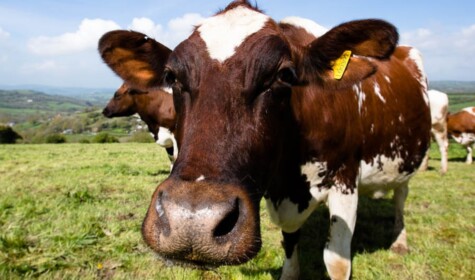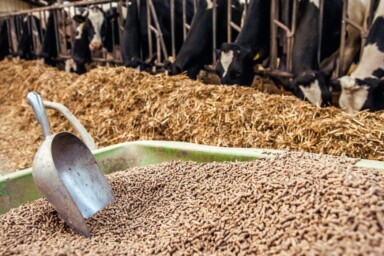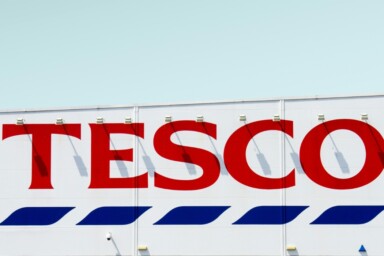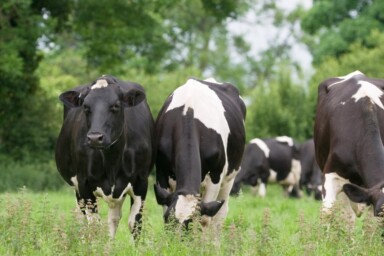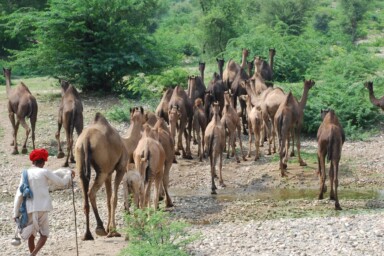Though it’s considered a valuable food, one rich in nutrients, 490 million pints of milk are wasted in the UK per year. David Wilson looks at how our deteriorated relationship with food enables us to waste so much of it, specifically milk.
The relationship we have with our food has changed dramatically compared to only a generation or two ago. In our grandparents’ day, food waste was considered a sin to be avoided at all cost and memories of wartime shortages prevailed amongst the majority of the population. As that collective memory died and the rise of corporate food system control became the norm, our daily bread has got significantly cheaper and more available. This shift has in turn led to an expectation of infinite and plentiful low-priced food inspiring little or no thought as to food’s true value. We take this bounty for granted.
Among the top 5 most wasted foods in the UK is milk, which, as dairy farmers know, is often sold for less than the cost of production. A dairy enterprise involves a high level of skill, long hours and dedication, not to mention the huge financial investment needed.
We waste an estimated 490 million pints a year overall – a shocking figure that equates to the production of 200 cows from 200 dairy herds.
And even more starkly, the milk from 40,000 cows (300,000 tonnes) is tipped down the kitchen sink each year – a real slap in the face for the farmer.
To help visualise this monstrous figure, it equates to the contents of more than 122 Olympic swimming pools per year and with milk having a carbon footprint of around 1.1kg CO2 per litre, that’s a whopping 3.3 million tonnes of CO2.
One of the reasons for this waste is ‘use by’ dates which people obey to the letter and which supermarkets like Morrisons are replacing with ‘best before’ to try and turn this wasteful tide. In days gone by, a sniff would tell us all we needed to know and even if the milk had slightly turned, the worst it would do was to make your cuppa taste a little different. Have you ever heard of anyone getting food poisoning from milk that’s gone off?
Just to rev this topic up another notch, in terms of total UK dairy product waste, we chuck out more than 500,000 tonnes per year, with most of this waste occurring in the home. Then there’s the jaw dropping figure of total annual global food waste which is 1.3 billion tonnes and enough to feed 3 billion people.
These numbers are almost too big to comprehend but it does tell us a whole lot about our relationship with food. Milk is very easy to waste – it is so cheap that it doesn’t warrant a second thought and is easy to pour down the drain. It even has the added bonus that we can smugly pop the empty plastic bottle into the recycling bin and cancel out any guilt about food waste.
Milk is such a valuable food. It provides a rich source of nutrients that are essential for growth and strong bones – a fact so well recognised by the government of the post-war era, that it was supplied free to all UK schools and, alongside fortification of foods, is considered to have played a role in the disappearance of rickets, incidences of which have been rising in the UK in recent years.
This is just one very obvious tip of the food waste iceberg, clearly showing the casual approach we have to what we eat each day. Exactly the same attitude is seen in the throwing out of wonky but perfectly edible carrots – beautiful food thrown away for cosmetic reasons, a concept unthinkable to our sometimes hungry forefathers.
There is no doubt that commoditisation of any product somehow dehumanises it and the consumer becomes what Wendell Berry calls “an industrial eater” – disconnected from the farm of origin in every way. Direct sales of milk through vending machines or direct delivery, can help people connect more with the farm and farmer of source and there is no doubt that customers love a story behind their purchase. Constant engagement with the consumer has to be a positive thing, but there is a long way to go.
There was a rock song back in the 1970s that predicted a time when we have virtually destroyed ourselves and “a piece of bread will buy a bag of gold”. Unless we rethink the way we value our food, those words may turn out to be prophetic.
If we can come to think of ourselves and our communities as intimately entwined with farming, we might view waste in a different way. And if eating is thought of as the final part in a long drama that starts with the planting of a seed or the birth of an animal, we might view food as something far more special, even sacred, and integral to life itself.
